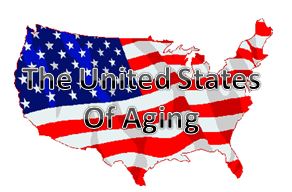The latest United States of Aging survey reports that most seniors have a positive outlook, but worry about money and community preparedness to assist with aging and eldercare issues. This telephone survey, sponsored by National Council on Aging, United Healthcare and USA Today, covers about 4,000 adults including a representative sample of 60+ year olds.
Most of the seniors in the survey reported few current issues with paying their bills. They did, however, worry about how well their communities are prepared for the burgeoning senior population. Many wonder if their financial resources will be enough for what they will need for the rest of their lives (more than half are concerned they will outlive their money), and if community resources will be available to help.
Survey respondents reported more use of technology and cited its importance in keeping them connected. Maintaining ties with friends and family was chosen as the most important factor in quality of life. Experts note that there is still too little emphasis on proactive prevention. Though 65% of seniors have at least two chronic health conditions, 18% never exercise and many more get very little exercise. More than half have not set any goals to manage their health in recent months.
Despite the overall positive outlook, the survey also shows that lower income seniors and those suffering chronic health conditions face many more difficulties and worries. These issues can be deeply troubling for those who fall in to both categories. More than a quarter of low-income seniors had done no preparation for their elder years.
So, what take-away lessons can we gather from this survey?
- Our communities should be prioritizing focus on aging issues and resources. Many communities may even have a wealth of resources, but access to information or awareness may be the issue.
- Proactive aging and preventative healthcare are still lacking. Communities and healthcare professionals should be emphasizing prevention. Few respondents received any help with creating an action plan for health or were encouraged to use community health resources. Sharing specific steps and positive role models may be more successful than simply lecturing on exercise and health. Individuals should consider making one significant investment/step for their health this year.
- Financial planning/evaluating resources is a key part of aging and eldercare planning. It can help to get a basic understanding of healthcare and long-term care costs and to work closely with a financial planning professional to map out a plan. For seniors needing eldercare, finances are an important piece of the puzzle. Geriatric care managers and elder law attorneys can help you connect the pieces.
- Staying connected to others is not only valued, but acknowledged as key to quality of life. This should be incorporated in to aging planning just as importantly as a health plan or physical assistance. Isolation is shown to not only increase depression, but to have direct health effects.
Want some help taking control of your aging and eldercare needs? Our Tampa Bay geriatric care management team provides help with planning, assessment, and crisis management, and connects you to the resources you need! Along with our EasyLiving home healthcare team, we can help seniors stay active and connected with services like senior transportation, healthy meal prep, medication management and more.

 Popular Downloads
Popular Downloads


 Get Our Newsletter!
Get Our Newsletter! Mission Statement
Mission Statement

